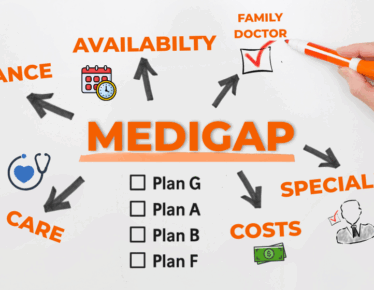What Do Clients Like the Least About Medigap Plans
Suppose you’re like many of our clients. In that case, you might be wondering why your Medicare Supplement (Medigap) premiums keep going up, especially when you haven’t even used your plan. It’s frustrating, and you’re not alone. As your retirement advisors, we want to walk you through the most common complaints we hear about Medigap plans, why they happen, and how you can plan smarter to avoid unnecessary costs.
Why Do Medigap Premiums Keep Increasing?
One of the biggest complaints we hear is, “I haven’t even used my plan—why are my premiums increasing every year?” Unfortunately, rate hikes are familiar with Medigap plans, and here’s why:
- Medigap plans receive no financial help from the government. Unlike Medicare Advantage plans (Part C), which are heavily subsidized (around $1,000 per person per month), Medigap insurers are responsible for 20% of the costs not covered by Medicare.
- They can’t deny claims. If Medicare covers a service, your Medigap plan must cover the remaining costs. There’s no cost-control mechanism like in Advantage plans, which can limit networks or deny specific procedures.
- Plans are standardized. That means insurers can’t tweak benefits or networks to manage costs. The only tool they have is premium pricing.
So when risk increases—whether from aging, rising medical costs, or sicker policyholders—the only option insurers have is to raise rates.
How Do Insurers Set Their Rates?
Premium is a critical topic that many enrollees overlook. Medigap premiums are determined using one of three pricing models:
- Community-Rated: Regardless of age, your premium is the same as everyone else on the plan.
- Issue-Age Rated: Premiums are set based on your age when you buy the policy—it won’t increase due to aging.
- Attained-Age Rated: Your premiums go up as you get older (plus inflation). This model generates the most complaints, especially with significant year-over-year hikes.
Most people unknowingly enroll in attained-age rated plans because they look cheapest at first, but that’s often a short-term illusion. We’ve seen rate increases in the 15–40% range in just one year with some carriers.
Can You Switch Plans Later?
The ability to switch Medigap plans is where many people get caught off guard. In most states (except for a few like New York, Connecticut, and California during birthday rule windows), once you’re past your 6-month Medigap open enrollment window, you typically have to pass health underwriting to switch. That means answering medical questions, and if you don’t “pass,” you may be denied or stuck with your current plan, regardless of how expensive it gets.
So while it sounds easy to shop around every year, in practice, it’s not. And even in states with more leniency, insurance companies still price new plans based on your age, not your health.
Should You Pick the Cheapest Plan Now?
We’ve had clients say, “I’ll just go with the cheapest plan now and worry about switching later.” But here’s what we ask:
Would you want the hassle of reapplying, updating your doctors, calling providers, getting new cards, and redoing paperwork every year to save a few dollars?
And even if you wanted to switch, you might not qualify, or the new rate may not be better due to your age.

Plan F vs. Plan G: A Quick Note
If you’re eligible for Plan F, be cautious—it tends to have the fastest rate increases because it covers everything, making it more expensive for the insurer. We often recommend Plan G instead—it includes a small annual deductible ($226), but it helps keep rate increases more moderate.
We even joke: Plan G is for “Grounded” rate increases; Plan F is for “Faster” ones.
Big Insurance vs. Small Insurance—Does It Matter?
It’s easy to think that going with a large, national insurance company means better stability. But that’s not always true. Some of the most prominent players create new, smaller “sister companies” to offer teaser rates and then close those books of business, locking in older clients and keeping out healthier new ones. This practice leads to higher risk and higher premiums. We’ve seen 40% premium jumps in a single year with national carriers who play that game.
What’s the Bottom Line?
- All Medigap premiums go up—some more than others.
- Don’t assume you can easily switch later—underwriting is real.
- Know the pricing structure of the plan before you enroll.
- Don’t fall for “lowest price now” traps—they often cost you more in the long run.
- It is beneficial to work with a broker who represents multiple carriers and explains your options transparently.
Our Role as Your Retirement Advisor
What makes KCIIS different? As an independent agency, we aren’t exclusive to one company. We act like your Medicare shopping mall—independent, unbiased, and entirely focused on healthcare and retirement income planning. We help clients in all 50 states, and we’ll always walk you through not just what your plan costs today, but what it may cost 5 or 10 years from now. We’ll also review your eligibility to switch plans safely, assess if a Medicare Advantage plan might be better for your situation, and help you evaluate the risks of switching back.
Five-Point Checklist for Changing Medicare Plans
If you’re considering switching to a Medicare Advantage plan or wondering if you can return to Medigap later, reach out to us. We have a Five-Point Checklist to walk you through before making any changes.
Want to Learn More?
If you’re still not sure what rating model your plan uses, don’t guess. Let’s go over it together.
Contact Us Get in Touch
Have a question or feedback?
Fill out the form below, and we’ll respond promptly!

By providing your name and contact information, you are consenting to receive calls, text messages, and/or emails from a licensed insurance agent about Medicare Plans at the number provided. You agree that such calls and/or text messages may use an auto-dialer or robocall, even if you are on a government do-not-call registry. This agreement is not a condition of enrollment.
Not connected with or endorsed by the United States government or the federal Medicare program. This is a solicitation of insurance, and your response may generate communication from a licensed producer/agent.




